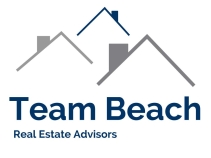 What are closing costs? Part 4: I Can’t Afford Closing Costs
What are closing costs? Part 4: I Can’t Afford Closing Costs
Part four of this five part series on closing costs in real estate transactions covers the inability to pay for closing costs. This series is prefaced with the fact that many closing costs are negotiable and customary costs can differ from city to city. This series is a general overview of what to expect at the closing table. To learn about what closing costs are go to “Part 1: Recurring Closing Costs”, “Part 2: Non-Recurring Closing Costs”, and “Part 3: The Bottom Line”.
Hopefully by now you’ve learned what closing costs are and what you can expect to pay at closing. For many, the total costs of getting into a home are too great to make homeownership a reality even though the monthly mortgage payments are not a problem. I’ve covered some of these ideas before in “Why won’ the seller accept my offer?” but here they are again.
Option 1: Save up
While the decline in the real estate market and historically low interest rates have made it a great time to buy you may want to wait a bit. Yes, a real estate agent just said it may be in your best interest to not buy right now. Take some time to plan out your budget and add in a savings for closing costs. Many potential buyer already do this for their down payment so why not be financially responsible and do the same for your closing costs.
Option 2: Ask for it from the seller
Okay… You’ve found the perfect home and don’t have the time to save up for closing costs. Try a seller concession. Due to the influx of first time home buyers the closing cost concession has become more prevalent. A closing cost concession is where the seller will contribute a certain amount or percentage to the buyer’s closing costs so they don’t have to pay for it. Great! Free money! Well, there is major downside. The seller will add this loss into their net amount and count it against you. Let’s use this example.
Buyer A offers $195,000 for a property that is listed at $200,000 without asking for a closing cost concession. The net amount the seller will receive at the close of escrow is $180,000.
Buyer B offers $200,000 for the same property and asks for a 3.5% closing cost concession. The net amount the seller will receive at the close of escrow is $178,000.
Buyer B just lost the house because of his closing cost assistance. Remember, even in non-multiple offer situations the seller will be looking at your net offer.
In order to overcome the lower net offer of a closing cost concession some buyers will add the amount of the concession to their offer price. This is a quick fix but you need to remember that you’re going to end up paying more on your loan because of it. More on this in a later blog post.
Option 3: Move the money around
Some lenders will allow for the down payment to be paid as a gift from a family member or employer. The money you had saved up for a down payment can now be used for your closing costs.
Check back for Part 5: Seller Closing Costs
Still looking for the right home? Have questions on how the home buying process works? Contact Ricky at (775) 750-1437 or Ricky@Resnv.com
Ricky Beach
Managing Broker|Realtor®|CDPE®|SFR®
| Office:(775) 313-9600 | Cell:(775) 750-1437 | Fax:(775) 562-4779 |
| Ricky@Resnv.com | Blog | Search For Homes | Foreclosure Help |





